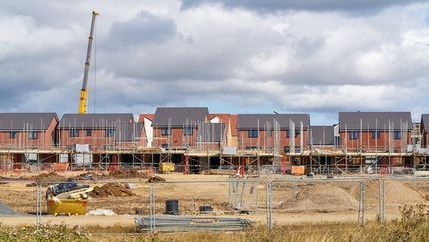
Years of waiting
Following a public consultation, the UK Government made a policy commitment in 2022 to increase the minimum accessibility standard for all newly built homes to the ‘M4(2)’ standard of building regulations, but this has not been carried forward.
The LUHC recommends that the Building Safety Regulator should launch the required technical consultation immediately and the change to a higher minimum standard should be actioned as soon as possible.
Wheelchair users’ needs not considered
Only 1.9% of homes in England were planned to be built to wheelchair-user standard in 2020. Local authorities must do more to address the needs of disabled people when producing their local housing plans.
The report proposes that the UK Government should require all local authorities to assess the need for accessible housing in their area. Furthermore, all local plans in England should include a minimum percentage of M4(3) standard homes.
Shortcomings in Disabled Facilities Grant (DFG)
In our response, Propertymark provided evidence of low awareness of the DFG and strongly encouraged the UK Government to promote the scheme to private landlords and their agents.
The Committee identified further issues with the DFG system, including a complex means test, which caused many applicants to drop out of the process entirely.
Fundamentally, the £30,000 grant limit has not increased since 2008, making it inadequate to cover the costs of some adaptations and leaving individuals to fund the shortfall. There is also inconsistency in how the funding is distributed across local authorities, and the support and advice offered to residents in different areas.
Evidence from an earlier review by the University of the West of England also highlighted unfairness between tenures, with a high proportion of grants going to social housing providers when increasing numbers of disabled people live in the private rented sector. This review was completed in 2018, but the UK Government has yet to respond to its recommendations.






